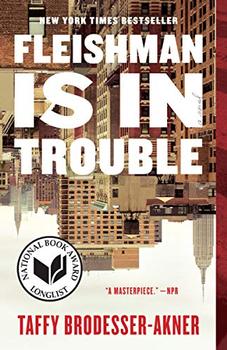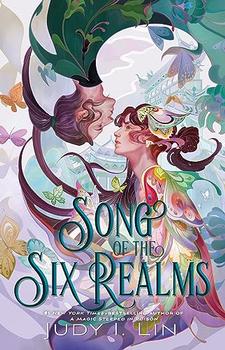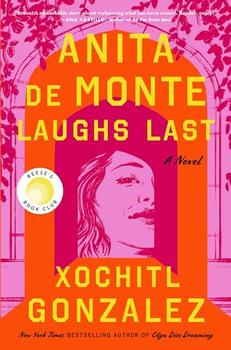Metals and the Human Diet
This article relates to Fleishman Is in Trouble

 Toby Fleishman, of Fleishman is in Trouble by Taffy Brodesser-Akner, is a hepatologist, a doctor who specializes in treating the liver, gall bladder and pancreas primarily. At one point in the novel, he diagnoses a patient with a genetic disorder called Wilson's disease. This rare condition causes copper to accumulate in the liver, brain and other organs, leading to symptoms such as fatigue, clumsiness, confusion, and, if untreated, death.
Toby Fleishman, of Fleishman is in Trouble by Taffy Brodesser-Akner, is a hepatologist, a doctor who specializes in treating the liver, gall bladder and pancreas primarily. At one point in the novel, he diagnoses a patient with a genetic disorder called Wilson's disease. This rare condition causes copper to accumulate in the liver, brain and other organs, leading to symptoms such as fatigue, clumsiness, confusion, and, if untreated, death.
I was surprised to learn that we all ingest—and require—small amounts of copper in our diet. Copper aids in the absorption of iron, contributing to healthy blood and bones. It is naturally absorbed into plant matter, which we then eat either directly, or indirectly through the animals we eat. Foods such as oysters, lobster, liver, leafy greens and chocolate all provide our required amounts. Copper is not the only metal in the human diet.
- Iron is key to keeping our blood healthy and able to produce energy. It's main purpose is to carry oxygen in red blood cells, while also removing carbon dioxide. Too little iron in one's diet leads to anemia, causing symptoms such as fatigue and weakness. Adolescent girls, vegans and people who exercise excessively are most at risk of becoming anemic. However, as people age, the possibility of iron overload increases. Excess iron is stored in the liver, heart and pancreas where it contributes to damage and disease of these organs.
- Zinc is crucial to cellular metabolism, aiding in immune function, healing, as well as aspects of learning and memory. It can be absorbed from red meat, poultry, seafood and fortified cereals. Although zinc deficiency is rare in Western countries, it is considered one of the most common micronutrient deficiencies in the world, and is linked to suppression of the immune system. Zinc overdoses are rare but, just as with other minerals in this list, can be caused by ingesting too many multivitamins. Ironically, the symptoms for excessive zinc are almost identical to that of zinc-deficiency because an overload suppresses the immune system instead of enhancing it. Symptoms include stomach pain and upset, problems healing and taste-alterations.
- Magnesium helps maintain proper levels of calcium, potassium and zinc, allowing our hearts, muscles and kidneys to function properly and building strong teeth and bones. It is found in grains, such as whole wheat and quinoa, and also in spinach, tofu, black beans and edamame. A deficiency may be caused by gastrointestinal diseases and diabetes or kidney disease.
- Sodium is one of the most important metals in the body, and is essential to nerve and muscle function, and plays an important role in regulating the amount of water in and around your cells. An imbalance—whether too much or too little—can also lead to a variety of health concerns that range from mild to life-threatening.
- Nickel, which is found in nuts, dried beans and peas, soybeans, grains and chocolate, is considered to be an essential nutritional element, though its precise uses are not well understood. It is thought to aid in iron absorption and strengthening bones.
- Other essential metals used in the body in small amounts include potassium (like sodium, it is essential for nerve and muscle function, fluid balance and more), lithium (which is used to treat bipolar disease), cobalt (required for the absorption of vitamin B12 and protein synthesis), molybdenum (removes toxins) and manganese (helps activate many enzymes needed for bodily functions like digestion).
Other, more questionable metals are also consumed.
- Aluminum is commonly ingested through food additives, especially prepared baked goods requiring leavening agents, and also in antacids. It has not been determined to fulfill any beneficial roles but, due to being the most plentiful metal in the earth's crust, it makes its way into many foods, including meat, eggs, fruit and tea leaves. Exposure to high levels of aluminum (such as breathing aluminum dust in the workplace) can have serious health impacts; but the levels found in food are generally considered safe; as only tiny amounts are absorbed by the body and the remainder passes straight through.
- Colloidal silver—tiny particles of silver suspended in liquid, given either topically or orally—was historically used to treat bacterial and fungal infections. Currently, the U.S. Food and Drug Administration (FDA) have ruled that these products are not considered effective or safe. When a large amount of silver is ingested, it can be deposited in the skin, liver, kidney, spleen and brain, leading to irreversible skin discoloration.
- Tin-laced products have been used in the treatment of dental problems such as gingivitis and bad breath, as well as hair loss. Scientific studies have not shown clear proof of effectiveness, but over-exposure can lead to damage to the central nervous system.
- Gold leaf products have been used to adorn pastries and other food items for a shiny touch of luxury and visual bling. However, gold serves no nutritional purpose. It is chemically inert, meaning it passes through your system, becoming a waste product without being absorbed. It won't hurt you, but it won't enrich you either.
- A number of other metals were once commonly used, but have been largely eliminated from the human diet now that their toxicity is better understood. These include lead and mercury. For example, the Romans used lead as a sweetener and in makeup; and mercury was used for centuries as a medicine to treat various diseases.
Gold leaf adorned cake, courtesy of Pastry Times
Filed under Medicine, Science and Tech
 This article relates to Fleishman Is in Trouble.
It first ran in the June 19, 2019
issue of BookBrowse Recommends.
This article relates to Fleishman Is in Trouble.
It first ran in the June 19, 2019
issue of BookBrowse Recommends.
This review is available to non-members for a limited time. For full access become a member today.
Membership Advantages
- Reviews
- "Beyond the Book" articles
- Free books to read and review (US only)
- Find books by time period, setting & theme
- Read-alike suggestions by book and author
- Book club discussions
- and much more!
-
Just $45 for 12 months or
$15 for 3 months.
- More about membership!

 Book Reviewed by:
Book Reviewed by: Toby Fleishman, of Fleishman is in Trouble by Taffy Brodesser-Akner, is a hepatologist, a doctor who specializes in treating the liver, gall bladder and pancreas primarily. At one point in the novel, he diagnoses a patient with a genetic disorder called Wilson's disease. This rare condition causes copper to accumulate in the liver, brain and other organs, leading to symptoms such as fatigue, clumsiness, confusion, and, if untreated, death.
Toby Fleishman, of Fleishman is in Trouble by Taffy Brodesser-Akner, is a hepatologist, a doctor who specializes in treating the liver, gall bladder and pancreas primarily. At one point in the novel, he diagnoses a patient with a genetic disorder called Wilson's disease. This rare condition causes copper to accumulate in the liver, brain and other organs, leading to symptoms such as fatigue, clumsiness, confusion, and, if untreated, death. ![]() This article relates to Fleishman Is in Trouble.
It first ran in the June 19, 2019
issue of BookBrowse Recommends.
This article relates to Fleishman Is in Trouble.
It first ran in the June 19, 2019
issue of BookBrowse Recommends.



